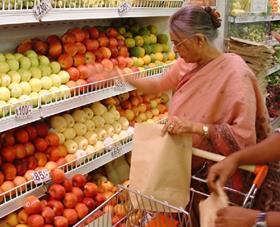
Ramadan usually represents a peak period on the fruit trade’s calendar in Bangladesh, but this year sales were ruined by negative reports in the local media that triggered a major food scare.
It all started in July when the Bangladesh Standards and Testing Institution (BSTI) launched a crackdown on local vendors selling foods that were unsafe. In particular, it targeted foods that were past their sell-by date and items that had been adulterated or treated with chemical preservatives to make them ‘look’ fresh.
Formaldehyde, a chemical compound that can be carciogenic, is sometimes added inappropriately in food processing for its preservative and bleaching effects, and the BSTI was particularly focused on finding traces of its commercial solution, formalin.
Formalin is a generic term used for a solution of 37 per cent formaldehyde gas dissolved in water and 10-15 per cent methanol. The usage of formalin in Bangladesh’s seafood industry has been a problem in the past, but the BSTI’s investigation uncovered its unauthorised usage in the fruit sector.
“The BSTI raided some stores selling food and fruit and found they were selling products treated with formalin, so the vendors were penalised and the goods were seized and destroyed,” said Salimul Haque Essa of leading Bangladeshi fruit import company Tasho Enterprises. “The items found to be treated with formalin were grapes, dates and apples. The BSTI then reported this to the local media, and consumers and buyers stopped buying fresh fruits due to fears that they were treated with formalin.”
In addition to the seizures relating to formalin, some fruit traders were apprehended and penalised for selling mangoes artificially ripened using carbide.
The incidents sparked a wave of media reports of city-markets selling chemical-laced fruits, such as this one in Bangladeshi English newspaper the New Age. Many of the stories warned of the threat to public health, particularly during periods of high fruit consumption like Ramadan, and quoted medical and health officials saying that consuming foods treated with these chemicals increased people’s risk of contracting cancer.
Unsurprisingly, the impact on sales was disastrous. “The sales went down by 80 per cent during the month of Ramadan `August`, which is usually the peak season for selling all fruits,” said Mr Essa. “This affected everyone and people are still afraid to buy fresh fruits and are seeking assurances that the products are free of formalin before they buy them.”
Bangladeshi fruit importers are now asking their suppliers to provide laboratory test certificates with each shipment to confirm the products are formalin-free, according to Mr Essa. Their requests have been precipitated by the government’s tough-line on testing imported fruits. “Basically if the government finds any trace of formalin on the fruit they inspect, they will destroy the whole consignment,” he told Fruitnet.com.
The situation is somewhat complicated by the fact that fresh fruits and other foods often contain small traces of naturally occurring formaldehyde. While Mr Essa says enquiries among its key suppliers of imported fruit appeared to show that formalin was not being applied to products during processing, traces could nevertheless appear. For instance, sulphur pads and cardboard cartons that are commonly used in the grape industry can both give off formaldehyde gasses.
In such cases of small traces, representatives of key supplying countries are sceptical about reports of the human health risks. For instance, the US’s Environmental Protection Agency allows the use of formalin in foods, and certain suppliers believethe BSTI must revise its zero tolerance approach in favour of a system that is more proportionate to the actual health risks.


